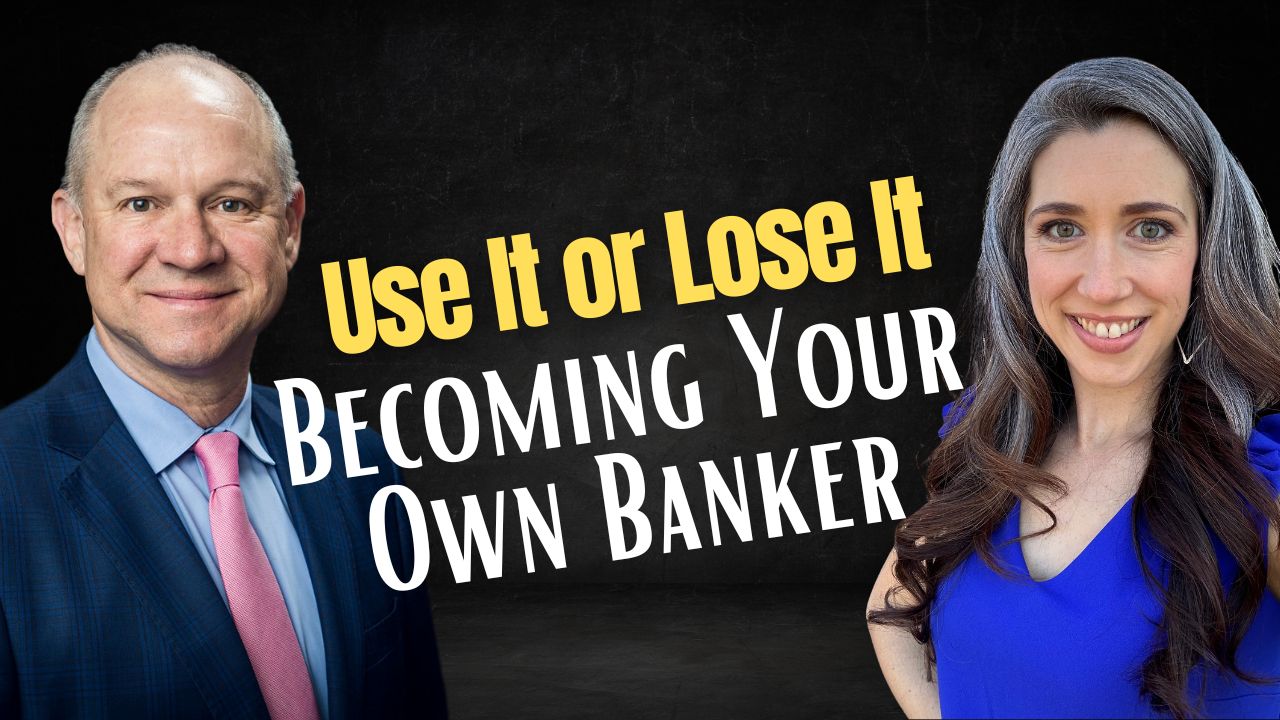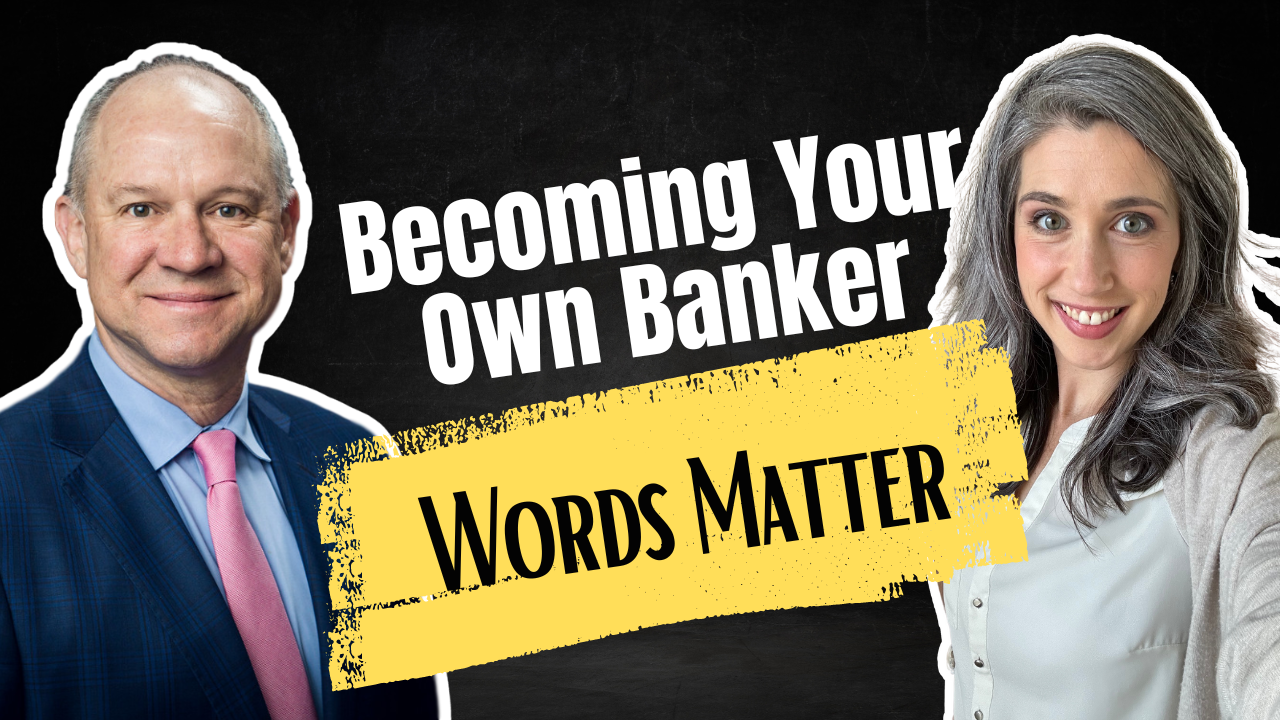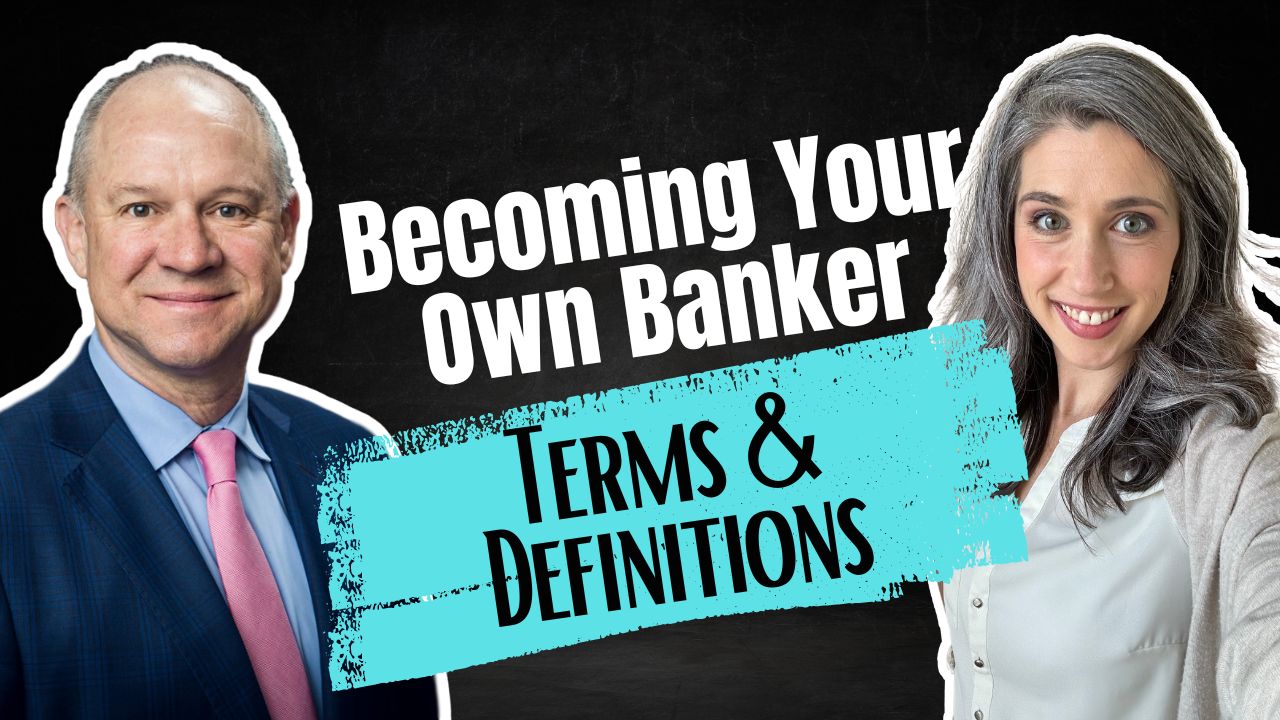
Becoming Your Own Banker, Part 11: Use It or Lose It
If you want to adopt a new financial mindset, you need new financial habits. As Nelson would say, “use it or lose it.” Today, we’re continuing the journey through Nelson Nash’s catalytic book, “Becoming Your Own Banker,” and discussing the role of habit, the power of habit, and what financial habits you need to implement if you want to gain the full advantage of the Infinite Banking Concept.
Join this conversation to find out how to make Infinite Banking more automatic, and how to best manage your Infinite Banking system for maximum financial control.
Podcast: Play in new window | Download (Duration: 1:00:28 — 69.2MB)
Subscribe: Apple Podcasts | Spotify | Android | Pandora | RSS | More
Table of Contents
Use It Or Lose It
“Use it or lose it” is a principle that applies to many things, including finance. For example, if you have vacation time, typically you’re required to use it within a specific timeframe or you lose it. If you learn a new skill, you’ve got to keep practicing it or you’ll regress. And as many people come to find out as they age, if you stop using your brain and your body, you start to lose some functionality, too. This is a part of the human condition, and to be aware of it and overcome it is imperative.
This applies to the infinite banking process because IBC isn’t a “set and forget” strategy. You’ve always got to be thinking about how your money is flowing, so much so that it’s a habit… NOT a background player. You’ve got to use your knowledge and skills to achieve the outcomes you want, or you’ll lose the control that IBC affords you.
On the flip side, your money is not affected by this human condition. You don’t have to “use or lose” your money. This is why many families struggle to save—because they’re always spending. IBC gives you capital and solves your need for financing through your carefully cultivated habits. However, that does not mean you need to finance every deal that comes your way. Having cash allows you to wait for the right deals to come your way, and the habits you create free up your mental energy to recognize those deals.
Simplify Your Decision-Making Process
One of the benefits of making habits (rather than automation), is that you get to simplify your decision-making process and conserve your mental energy. A great example of this is being a vegan or having some other dietary restriction. It usually comes from a place of principle, and it removes heavy lifting from your choices. When you’re a vegan, you know you’re not going to eat beef or drink milk–it’s a habit and lifestyle. It doesn’t matter who’s watching you or where you are, or even how you’re feeling that day.
There aren’t always equivalents to this in other areas of life. However, IBC can be the foundation of your financial principles so that your choices become a habit. With IBC, saving money becomes a habit. Then, with the mental energy you conserve by adopting this habit, you can spend a bit more energy and thought determining how to use your capital to your best advantage based on IBC principles.
[18:09] “Your habits ultimately determine the direction of your life, and they free you up to be able to have mental energy in other areas.”
IBC is a Personal Monetary System
What we’re getting at, ultimately, is that the Infinite Banking Concept is not simply a product. It’s not just life insurance. It’s a personal monetary system that will completely change the way you think about and use your money for the rest of your life—and hopefully for your future generations, too.
IBC gives you capital, which gives you control. And just like you want to use your knowledge and skills so you don’t lose them, remember, you also want to hold your money for the right moment. The habits you create—saving money instead of spending—give you the cognitive space to ask the important questions.
[34:45] “If you want a new idea to work for you, you have to have habits that support that idea. And if your habits don’t support that idea and make it more automatic for you, you’re going to lose what you were trying to gain by changing your mindset in the first place.”
The Power of Capitalization
The thing about capitalization is that you’re going to have a need for capital over your entire lifetime. It’s not just something you need now. That means you need to have a long-term view of capitalization. A good long-term view is about sustainability. How do you make good choices now that will give you more good choices in the future?
The first step would be to start a policy now. You need to use that capital for IBC or you’ll lose the opportunity for those dollars today. Of course, make sure that you can pay your premiums now, and in the future. Then, be smart about how you capitalize. You want to invest for cash flow so that you can pay your policy loans, or make personal purchases with the awareness that you must pay those loans. Doing this keeps your policy in good standing and makes it viable now and in the future.
[50:04] “If you want uncommon results, then you have to do things in an uncommon way.”
Book A Strategy Call
Do you want to coordinate your finances so that everything works together to improve your life today, accelerate time and money freedom, and leave the greatest legacy? We can help! Book an Introductory Call with our team today https://themoneyadvantage.com/calendar/, and find out how Privatized Banking, alternative investments, or cash flow strategies can help you accomplish your goals better and faster. That being said, if you want to find out more about how Privatized Banking gives you the most safety, liquidity, and growth… plus boosts your investment returns, and guarantees a legacy, go to https://privatizedbankingsecrets.com/freeguide to learn more.
Becoming Your Own Banker, Part 29: Words Matter
Ever felt like financial jargon was designed to confuse rather than clarify? Join us as we navigate the labyrinth of financial terminology, particularly within the infinite banking sphere. It’s not just about learning by rote; it’s about cementing a rock-solid financial strategy based on clear, precise language. By dissecting common misconceptions, we aim to transform…
Read MoreBecoming Your Own Banker, Part 28: Infinite Banking Definitions
Have you ever felt like you’re on a financial hamster wheel, constantly spinning but never gaining traction? Join us as we unpack the epilogue and glossary of Nelson Nash’s “Becoming Your Own Banker.” It’s a journey through the intricate philosophy of IBC, as we cover Infinite Banking definitions that shows how effective money management can…
Read More


